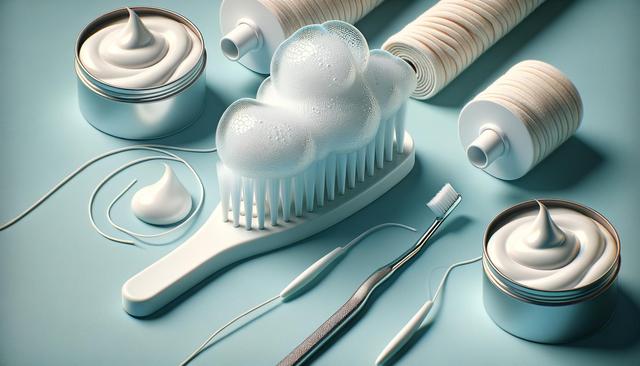The Growing Importance of Dental Hygiene Services
As awareness around oral health continues to grow, more individuals are recognizing the value of preventive care through dental hygiene services. Maintaining a clean and healthy mouth not only enhances appearance and comfort but also plays a vital role in overall health. Dental hygiene appointments are no longer just about polishing teeth—they encompass a broader spectrum of care, including education, early detection of oral conditions, and personalized guidance for home care routines. This shift is one reason why more people are exploring careers in dental hygiene, as the demand for knowledgeable professionals rises alongside patient interest in proactive oral care.
Regular dental hygiene services provide a deeper level of cleaning than what can be achieved through daily brushing and flossing alone. This includes removing plaque and tartar buildup that contribute to gum inflammation and tooth decay. Gum disease, if left untreated, can lead to serious health concerns such as tooth loss and systemic inflammation. With professional intervention, early signs of issues can be managed effectively, helping patients avoid costly treatments down the line.
What to Expect During a Dental Hygiene Appointment
A typical dental hygiene visit is structured to offer a thorough assessment of a patient’s oral health. During the appointment, dental hygienists carry out several key tasks, such as:
- Reviewing medical and dental histories to understand any changes in health
- Examining soft tissues for signs of disease or abnormalities
- Measuring gum pockets to assess periodontal health
- Removing plaque, tartar, and stains from the teeth
- Applying fluoride treatments when appropriate
- Providing tailored advice on brushing, flossing, and dietary habits
These services are essential for maintaining oral hygiene and are often customized based on the individual’s needs. Dental hygienists also use digital tools and imaging to monitor changes over time, helping guide long-term oral health strategies. This hands-on, preventive care approach is drawing attention from those considering a career in the dental field, especially as public interest in wellness continues to expand.
Why More Are Looking Into Dental Hygiene Programs
The growing demand for preventive dental services has led to a noticeable increase in interest in dental hygiene programs. Many individuals are drawn to the field because it offers a meaningful way to contribute to community health while enjoying job stability and flexible work options. In addition, dental hygienists often report high levels of job satisfaction due to the direct impact they have on improving patients’ lives.
Dental hygiene programs typically focus on both theoretical knowledge and practical skills, covering subjects like anatomy, periodontology, radiography, and patient communication. These programs prepare students to:
- Deliver comprehensive oral assessments
- Conduct professional cleanings using specialized tools
- Identify early signs of oral health issues
- Educate patients on disease prevention methods
As the healthcare sector continues to place greater emphasis on preventive strategies, dental hygiene stands out as a rewarding and increasingly relevant career path.
The Role of Dental Hygienists in Preventive Health
Dental hygienists play a critical role in the wider healthcare system by helping patients prevent oral diseases before they progress. Their role goes beyond cleaning teeth—they are educators, advocates, and frontline providers in the early detection of oral health issues. Many dental conditions, such as gingivitis or early-stage periodontal disease, can be reversed or managed with timely intervention, and hygienists are often the first to spot these concerns.
Additionally, research continues to highlight the link between oral health and systemic conditions such as diabetes, heart disease, and respiratory illnesses. By maintaining good oral hygiene, patients may reduce their risk for these and other chronic conditions. Dental hygienists are trained to recognize symptoms that may require further evaluation and can refer patients to appropriate healthcare providers when necessary. This integrative approach benefits not just the patient’s oral health, but their overall well-being.
Enhancing Your Oral Care Routine Between Visits
While professional dental hygiene services are essential, maintaining a strong at-home routine is just as important. Patients who actively care for their teeth and gums between visits often experience fewer complications and enjoy longer-lasting results from their cleanings. Simple yet effective daily habits contribute significantly to oral health outcomes.
To support oral hygiene between professional appointments, consider the following practices:
- Brush twice daily using a fluoride toothpaste
- Floss at least once per day to remove plaque between teeth
- Use an antimicrobial mouthwash to reduce bacteria
- Limit sugary snacks and beverages
- Stay hydrated to support saliva production, which naturally helps cleanse the mouth
Many dental hygienists offer personalized advice to help patients adapt their routines based on individual needs, such as orthodontic appliances, sensitivity, or gum recession. This guidance ensures that patients can take proactive steps at home to complement the care they receive in the clinic.
Conclusion: A Smart Step Toward Lasting Oral Health
Dental hygiene services are a cornerstone of preventive care, playing a key role in maintaining both oral and overall health. As more individuals seek ways to stay ahead of health issues, the value of regular cleanings and education from dental professionals is becoming increasingly recognized. This shift is also inspiring many to pursue careers in dental hygiene, where they can make a positive impact each day. Whether you’re a patient looking to improve your oral care routine or someone considering entering the field, investing in dental hygiene is a proactive step toward a healthier future.




Leave a Reply